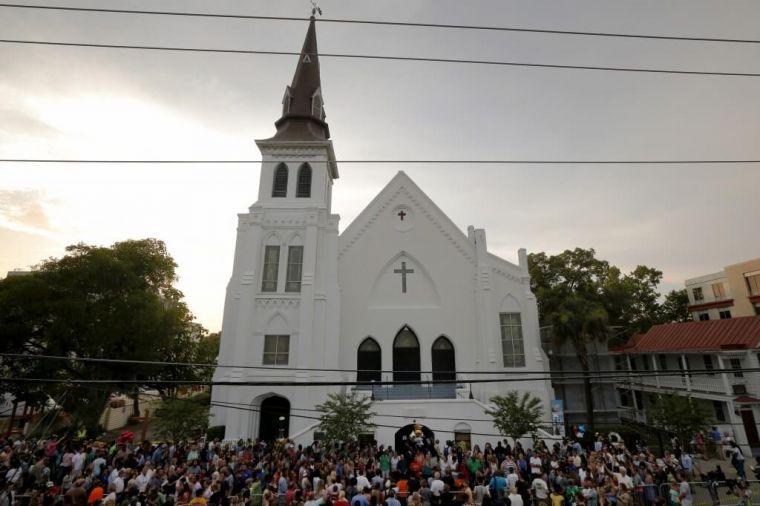Should churches change open-door policy for security's sake? Leaders express doubts

Two months after the deadly church shooting in Charleston, South Carolina, that claimed the lives of nine members of the church, including its pastor, Christian churches in the US are considering whether to change their open-door policy for all.
The tradition is for all churches to welcome those who want to pray, join a Bible study or Sunday services as what has been practiced since the first African Methodical Episcopal church opened in 1787, according to a USA Today report.
That was the same policy in effect when suspect Dylann Roof entered the Emanuel AME church last June 17 and began his killing spree.
After the shooting, concerns were raised about church security and safety. However, some church leaders say changing the policy would go against the church's mission.
"To change the open-door policy would be to change the Gospel," said Rev. Dr. William Barber II, pastor at Greenleaf Christian Church in Goldsboro, North Carolina and president of the North Carolina NAACP. "That is not the way the black church has responded historically."
Rev. Faye Daniels of the New Ebenezer Baptist Church in Columbia, South Carolina, said, "the church is a gathering of believers, who are positioned and postured for the sole purpose of drawing people in. To close the door and alter the open-door policy would be in total opposition to the whole purpose of the church."
Today, worshippers are evidently more vigilant of the people around them more than ever.
"We're still deliberate in carrying out The Great Commission, but I think there's a keen awareness, and we're more vigilant of our surroundings," said Rev. Dr. J. Anthony Josey of Washington's Allen Chapel AME.
After the Charleston shooting, a document titled "12 Considerations for Congregational Security" was distributed by AME leaders, advising for the creation of a security plan and team, coordinating with local law enforcement and securing the church's entrance and exits.
More than 150 ministers and church members held a meeting at a high school in Columbia, South Carolina, weeks after the shooting to discuss church security.
"Knowledge is power, and we are trying to do what we can to empower churches," said Lonnie Randolph, president of the South Carolina State Conference of the NAACP. "It was an unfortunate event that took place, a very sad event, but we also know that this could have happened anywhere in America."
Putting metal detectors and armed guards are an option, but church leaders say these are disruptive and inconsistent with the church's image as a place of worship.
"There has to be a distinction between the church and an armed garrison," said AME Bishop Gregory Ingram from Philadelphia. "If every church had barbed wires and guards around it, it ceases from being a church. It becomes almost like a microcosm of all of things wrong in society, not a place with open arms."











